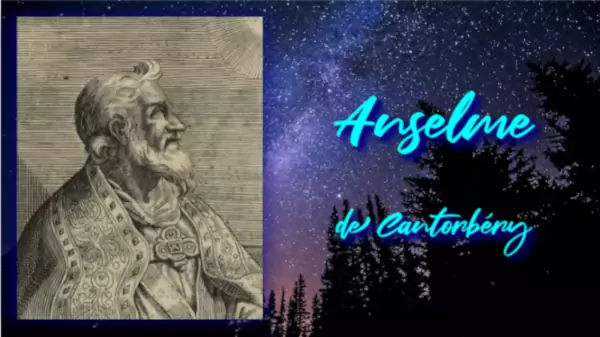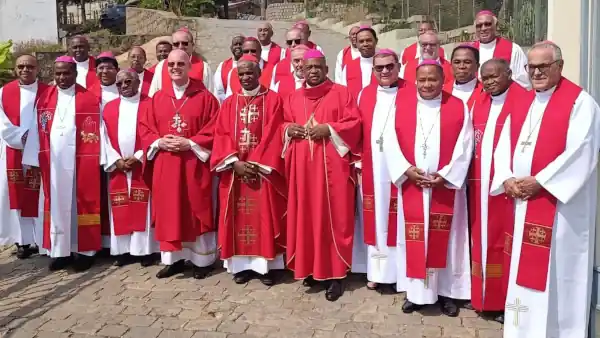21 aprily - Saint Anselm of Canterbury, known as the "Magnificent Doctor", is a Benedictine monk born in Aosta (Italy) in 1033. Also called Anselme of Aosta because of his birth in Valle d'Aosta, he is better known as Anselme du Bec because he belonged as a Benedictine monk to the Abbey of Notre Dame du Bec in Normandy.
A cleric trained by the Benedictines of the Church of Aosta, who broke away from his father and his teachers at the age of fifteen, he decided, on the death of his mother, around 1056, to join the teaching of a sufficiently renowned schoolmaster. He left Aosta with a classmate for Burgundy and then France. From there, in 1059, he went to Avranches, on which the prestigious Abbey of Mont-Saint-Michel depends and where another Lombard, Lanfranc, was a schoolmaster. The death of his father made him envisage a return to Savoy and a life as a patrician.
In 1060, after hesitating about his vocation, he followed the advice he sought from Maurille, Archbishop of Rouen. He renounced becoming a hermit and chose to become a monk in the brand new Bec Abbey. While taking charge of teaching grammar to his fellow students, he completed his trivium by studying dialectics and rhetoric under the guidance of the learned Prior Lanfranc, and alongside Yves de Chartres. Lanfranc was appointed abbot of Saint-Etienne de Caen in 1063, and Anselme in turn became prior of Le Bec. Pupils came from all over Christendom.
At the very beginning of March 1093, Guillaume le Roux fell ill at the Alveston manor. On the 6th, he received Anselme at Gloucester Castle to offer him the seat of Canterbury, an ecclesiastical stronghold vacant since the death of Lanfranc. The king, in need of finances to maintain future peace, awaits a reform in the government, especially that of the abbeys, improving the income of the state notes. Anselm also has a reform in mind, but quite another one, the Gregorian reform, which aims at freeing the Church from the State and from "simony". From the outset he rejects the Carolingian custom of being invested by the temporal sovereign and claims to receive his pallium only in Rome from Pope Urban II. Contested by Emperor Henry IV, Pope Urban II was not recognized by King William II of England, who did not, however, recognize the antipope Clement III. Anselm was consecrated Archbishop of Canterbury on December 3, 1093, in polemical terms that called into question the Winchester Agreement.
In 1076, he synthesized his teaching cycle in a treatise on dialectics applied to theology, the Monologion de Divinitatis, a demonstration of elegance in the handling of the technique of reasoning, both uncluttered and relevant. He completed it the following year with a "Supplement", the Proslogion seu Alloquium de Dei existentia, in which he uses the arguments no longer of exegesis, that is, the authority of texts and Revelation, but those of logic to deal with the question of the existence of God. Indeed, Aristotle's scientific influence on Anselm is not in doubt: in particular, he borrows from the Greek philosopher the concept of necessity, which becomes a fundamental notion of his rational theology.
Contenu soumis à la licence CC-BY-SA. Source : Article Anselme de Cantorbéry de Wikipédia en français (auteurs)








